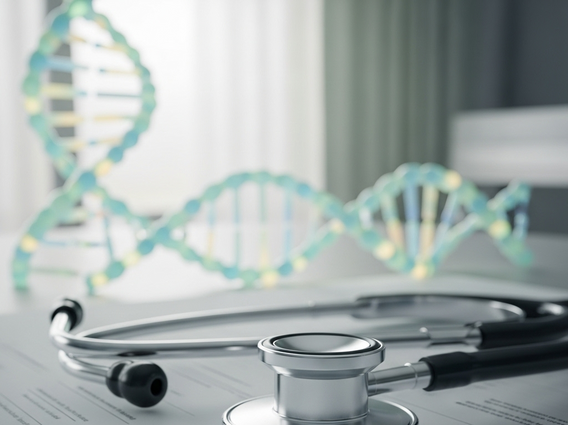Anxiety and Cancer
A cancer diagnosis can be one of the most challenging experiences in a person’s life, bringing with it a cascade of physical, emotional, and psychological changes. Among these, anxiety is a particularly common and often debilitating companion, impacting patients at every stage of their journey.

Key Takeaways
- Anxiety and cancer are deeply intertwined, with medical, emotional, and social factors contributing to heightened stress levels.
- Recognizing anxiety symptoms in cancer patients is crucial for timely intervention and improved quality of life.
- Effective strategies for managing anxiety during cancer treatment range from practical coping mechanisms to professional medical interventions.
- Robust support for anxiety and cancer, including family, friends, and mental health professionals, is vital for patient well-being.
- Long-term strategies are essential for coping with anxiety after cancer diagnosis and throughout survivorship.
How Cancer Causes Anxiety: What is Anxiety’s Link to Cancer?
Understanding what is anxiety in the context of a cancer diagnosis reveals a complex interplay of factors. Cancer doesn’t just affect the body; its psychological impact of cancer on anxiety is profound, stemming from various sources that can overwhelm an individual’s coping mechanisms. The question of how cancer causes anxiety is multifaceted, touching upon physical, emotional, and existential concerns.
Medical factors contributing to anxiety in cancer
The physical realities of cancer and its treatment are significant contributors to anxiety. Pain, fatigue, nausea, and other side effects can be constant reminders of the illness, creating a cycle of discomfort and worry. The very nature of medical procedures, from biopsies to chemotherapy, can be frightening and invasive. Furthermore, the fear of recurrence or progression of the disease is a pervasive source of anxiety, even for those in remission.
- Physical symptoms of cancer (e.g., pain, fatigue, weight loss)
- Side effects of treatments (e.g., chemotherapy, radiation, surgery)
- Frequent medical appointments and procedures
- Fear of disease progression or recurrence
- Uncertainty about treatment effectiveness
Emotional and social triggers for anxiety after cancer diagnosis
Beyond the medical aspects, the emotional and social landscape shifts dramatically after a cancer diagnosis. Patients often experience a profound loss of control over their lives, leading to feelings of helplessness. Changes in body image, fertility concerns, and the potential for financial strain can exacerbate emotional distress. Socially, patients might feel isolated, struggling to communicate their experiences to loved ones or facing changes in their relationships. The initial shock and subsequent adjustment period can be particularly challenging for coping with anxiety after cancer diagnosis.
The uncertainty of cancer and what is anxiety’s role
The inherent uncertainty associated with cancer is perhaps one of the most potent drivers of anxiety. Questions about prognosis, treatment outcomes, and future quality of life can be relentless. For many, what is anxiety becomes a constant companion, fueled by the unknown. This uncertainty can make it difficult to plan for the future, affecting work, family, and personal aspirations. The mind races, trying to predict outcomes, often leading to catastrophic thinking and heightened stress.
Biological mechanisms linking cancer and anxiety
Emerging research also points to biological connections between cancer and anxiety. The disease itself, and its treatments, can induce systemic inflammation and alter neurochemical pathways in the brain, potentially contributing to mood disorders. Stress hormones, elevated due to the cancer experience, can also play a role in exacerbating anxious feelings, creating a physiological basis for the heightened emotional state.
Anxiety Symptoms in Cancer: What is Anxiety’s Manifestation?
Recognizing anxiety symptoms in cancer patients is a critical step toward effective management and improving quality of life. While some worry is normal given the circumstances, understanding what is anxiety’s manifestation in a clinical sense helps differentiate between transient stress and a more significant condition requiring intervention. The signs can be both physical and emotional, often overlapping and intensifying over time.
Recognizing anxiety symptoms in cancer patients
Being aware of the signs of anxiety, both in oneself and in loved ones, is paramount. Patients may describe a persistent feeling of dread, restlessness, or an inability to relax. Family members might notice changes in behavior, such as increased irritability, withdrawal from social activities, or difficulty concentrating. Early recognition allows for proactive steps to be taken, preventing anxiety from escalating.
- Excessive worry or fear that is difficult to control
- Feeling restless, on edge, or keyed up
- Difficulty concentrating or mind going blank
- Irritability or impatience
- Sleep disturbances (insomnia or excessive sleep)
- Avoidance of situations or activities
Physical and emotional signs of anxiety and cancer
The physical toll of anxiety can mimic or worsen cancer symptoms, making it harder to distinguish between the two. Common physical manifestations include a racing heart, shortness of breath, muscle tension, headaches, and digestive issues. Emotionally, patients may experience panic attacks, persistent feelings of sadness, a sense of impending doom, or an inability to enjoy activities they once loved. The interplay between these physical and emotional signs can create a challenging experience for individuals living with anxiety and cancer.
Differentiating normal worry from clinical anxiety
It’s natural for anyone facing cancer to experience worry. However, clinical anxiety differs in its intensity, duration, and impact on daily functioning. Normal worry is typically transient and related to specific concerns, whereas clinical anxiety is pervasive, disproportionate to the situation, and interferes significantly with a person’s ability to cope, sleep, or engage in treatment. Understanding what is anxiety’s threshold for needing professional help is key.
| Feature | Normal Worry | Clinical Anxiety |
|---|---|---|
| Intensity | Mild to moderate, manageable | Severe, overwhelming, debilitating |
| Duration | Temporary, tied to specific events | Persistent, often daily for weeks/months |
| Impact on Life | Minimal disruption to daily activities | Significant interference with daily functioning, treatment adherence, relationships |
| Physical Symptoms | Mild, transient (e.g., slight tension) | Pronounced and frequent (e.g., panic attacks, chronic muscle tension, digestive issues) |
| Control | Can be managed or redirected | Difficult to control, intrusive thoughts |
When to seek professional help for anxiety
If anxiety symptoms are persistent, severe, or significantly impairing daily life, it’s time to seek professional help. This includes situations where anxiety interferes with treatment adherence, sleep, eating, or social interactions. A healthcare provider can assess the situation, rule out other causes, and recommend appropriate interventions, ensuring that patients receive the necessary support for anxiety and cancer.
Managing Anxiety During Cancer Treatment: What is Anxiety Relief?
Effectively managing anxiety during cancer treatment is crucial for both mental well-being and the overall success of the treatment plan. Patients need a comprehensive approach to find anxiety relief for cancer patients, combining self-help strategies with professional support. Understanding what is anxiety relief in this context involves addressing both the immediate symptoms and the underlying causes of distress.
Coping with anxiety after cancer diagnosis
The period immediately following a cancer diagnosis can be particularly overwhelming. Initial coping strategies often involve seeking information, connecting with trusted individuals, and allowing oneself to process the shock and fear. It’s important to acknowledge these feelings rather than suppress them. Early intervention and developing a personalized coping toolkit are vital for navigating the initial stages of anxiety and cancer.
Practical strategies for managing anxiety during cancer treatment
Many practical strategies can help alleviate anxiety during treatment. Mindfulness and meditation practices can help ground individuals in the present moment, reducing rumination about the future. Regular, gentle exercise, if approved by the medical team, can release endorphins and reduce stress. Journaling allows for emotional expression, while maintaining a healthy diet and adequate sleep supports overall resilience. These strategies empower patients in their journey of coping with anxiety after cancer diagnosis.
- Mindfulness and meditation exercises
- Gentle physical activity (e.g., walking, yoga)
- Deep breathing techniques
- Journaling thoughts and feelings
- Maintaining a balanced diet and hydration
- Ensuring adequate sleep hygiene
- Engaging in hobbies or creative outlets
- Setting realistic daily goals
Medical interventions for anxiety relief for cancer patients
For some, practical strategies alone may not be sufficient. Medical interventions can provide significant anxiety relief for cancer patients. This may include short-term use of anti-anxiety medications or antidepressants prescribed by a physician. Psychotherapy, such as Cognitive Behavioral Therapy (CBT), is also highly effective in helping patients identify and reframe anxious thought patterns. These interventions are often used in conjunction with other coping methods to provide holistic care.
Communication with your healthcare team
Open and honest communication with your oncology team is paramount. They can help distinguish between anxiety symptoms and treatment side effects, adjust medications, or refer you to mental health specialists. Don’t hesitate to discuss your emotional well-being, as it is an integral part of your overall health and treatment success. Your team is there to provide comprehensive support for anxiety and cancer.
Support for Anxiety and Cancer: What is Anxiety Support?
No one should face anxiety and cancer alone. A robust network of support is essential for navigating the emotional challenges of the disease. Understanding what is anxiety support encompasses various resources, from personal connections to professional guidance, all aimed at fostering resilience and providing comfort.
Finding support for anxiety and cancer
Seeking out support can significantly reduce feelings of isolation and anxiety. Cancer support groups, both in-person and online, offer a safe space to share experiences, gain insights from others facing similar challenges, and feel understood. Patient advocacy organizations and hospital-based programs often provide resources, educational materials, and connections to local support networks, all contributing to effective anxiety relief for cancer patients.
- Cancer-specific support groups (local and online)
- Peer-to-peer mentoring programs
- Online forums and communities
- Patient advocacy organizations
- Hospital-based support services
The role of family and friends in anxiety relief
Family and friends play a crucial role in providing emotional and practical support. Their presence, active listening, and willingness to help with daily tasks can alleviate significant burdens. Encouraging open communication about feelings, without judgment, can help patients feel less alone. Educating loved ones about the psychological impact of cancer on anxiety can also help them provide more effective and empathetic support.
Professional psychological support for anxiety
For many, professional psychological support is a cornerstone of managing anxiety during cancer treatment and beyond. Therapists, psychologists, and psychiatrists specializing in psycho-oncology can provide individualized counseling, teach coping skills, and, if necessary, prescribe medication. Social workers can also assist with practical concerns such as financial aid or navigating healthcare systems, indirectly reducing anxiety.
Advocating for your mental health needs
It’s important for patients to advocate for their mental health needs within the broader healthcare system. Don’t hesitate to ask your oncology team for referrals to mental health specialists or inquire about integrated care options. Your emotional well-being is as important as your physical health in the fight against cancer, and asserting your need for comprehensive care is a powerful step towards anxiety relief for cancer patients.
Coping with Anxiety After Cancer: What is Anxiety’s Long-Term View?
The journey with anxiety and cancer does not end with the completion of active treatment. Many survivors experience ongoing anxiety, often related to fear of recurrence, long-term side effects, or adjusting to a “new normal.” Understanding what is anxiety’s long-term presence and developing strategies for coping with anxiety after cancer diagnosis are vital for sustained well-being.
Long-term coping with anxiety after cancer diagnosis
Long-term coping involves integrating anxiety management into daily life as an ongoing practice. This might include continuing mindfulness practices, maintaining a healthy lifestyle, and regularly engaging in activities that bring joy and a sense of purpose. Building a strong support system and knowing when to reach out for help are continuous efforts that contribute to lasting anxiety relief for cancer patients.
- Continued practice of stress-reduction techniques (e.g., meditation, yoga)
- Regular physical activity adapted to individual capabilities
- Maintaining a balanced diet and healthy lifestyle
- Engaging in meaningful hobbies and social activities
- Establishing a routine that promotes stability and well-being
Post-treatment anxiety and cancer survivorship
Cancer survivorship brings its own unique set of challenges, including the potential for post-treatment anxiety. This can manifest as “scanxiety” (anxiety before follow-up scans), fear of recurrence, or difficulty adjusting to life after intense treatment. The psychological impact of cancer on anxiety can linger for years, requiring ongoing vigilance and adaptive strategies. It’s important to validate these feelings and seek appropriate support.
Sustaining anxiety relief for cancer patients
Sustaining anxiety relief for cancer patients requires a proactive and consistent approach. This includes regular check-ups with both oncology and mental health professionals, as needed. It also involves self-monitoring for signs of escalating anxiety and having a plan in place to address them. Building resilience, finding meaning in the experience, and focusing on post-traumatic growth can transform the long-term experience of anxiety.
Building resilience post-cancer
Resilience is the ability to bounce back from adversity, and it can be actively cultivated after cancer. This involves developing a positive outlook, fostering strong relationships, and finding purpose. Engaging in activities that promote self-efficacy and control can counteract feelings of helplessness. Recognizing personal strengths and celebrating milestones, no matter how small, can significantly contribute to long-term emotional well-being and reduce the burden of anxiety and cancer.
Frequently Asked Questions
Is anxiety common in cancer patients?
Yes, anxiety is remarkably common among individuals facing a cancer diagnosis. Studies indicate that a significant percentage of cancer patients experience clinically significant anxiety at various stages of their illness, from diagnosis through treatment and into survivorship. The overwhelming nature of the disease, its treatments, and the inherent uncertainties all contribute to this heightened emotional state.
It’s a natural human response to a life-threatening illness, but when it becomes persistent and debilitating, it warrants professional attention. Recognizing this prevalence helps validate patients’ experiences and encourages them to seek the necessary support.
Can anxiety affect my cancer treatment?
Yes, unmanaged anxiety can indeed have an impact on cancer treatment. Severe anxiety can lead to difficulty adhering to treatment schedules, reluctance to undergo necessary procedures, or even affect the body’s ability to cope with side effects. It can also impair communication with the healthcare team, making it harder for patients to express their concerns or understand complex medical information.
Conversely, effective managing anxiety during cancer treatment can improve a patient’s quality of life, enhance their ability to cope with side effects, and potentially improve treatment adherence, leading to better overall outcomes.
What’s the difference between normal worry and clinical anxiety in this context?
Normal worry in the context of cancer is a natural, transient response to specific stressors, such as an upcoming scan or a treatment side effect. It’s usually manageable and doesn’t significantly disrupt daily life. Clinical anxiety, however, is more pervasive, intense, and persistent.
It involves excessive worry that is difficult to control, often accompanied by physical symptoms like a racing heart, shortness of breath, or muscle tension, and it significantly interferes with a person’s ability to function, sleep, or engage in treatment. Understanding this distinction is key to determining when professional help is needed for anxiety relief for cancer patients.
When should I seek professional help for anxiety related to cancer?
You should seek professional help if your anxiety symptoms are persistent, severe, or significantly impairing your daily life. This includes if you’re experiencing panic attacks, having trouble sleeping or eating due to worry, feeling overwhelmed most of the time, or if your anxiety is interfering with your ability to follow your treatment plan or engage in social activities.
Don’t hesitate to discuss your feelings with your oncology team; they can refer you to a mental health specialist who can provide tailored support for anxiety and cancer. Early intervention can prevent anxiety from becoming more entrenched and debilitating.
Are there medications for anxiety in cancer patients?
Yes, for some cancer patients, medication can be an effective part of an overall strategy for anxiety relief for cancer patients. Anti-anxiety medications (anxiolytics) or antidepressants may be prescribed, often on a short-term basis or to help manage severe symptoms. The choice of medication will depend on individual circumstances, potential interactions with cancer treatments, and other health conditions.
These medications are typically used in conjunction with other therapies, such as psychotherapy or mindfulness practices, to provide comprehensive relief. Any medication decision should always be made in close consultation with your oncology team and a mental health professional.
How can family members help someone with anxiety and cancer?
Family members can provide invaluable support for anxiety and cancer by offering a listening ear without judgment, helping with practical tasks, and encouraging the patient to express their feelings. Educate yourself about the psychological impact of cancer on anxiety to better understand their experience.
Offer to accompany them to appointments, help manage household chores, or simply spend quality time together. Encourage them to seek professional help if needed, and respect their need for space while also reminding them they are not alone. Your consistent presence and understanding can make a significant difference in their journey.






Warning: Undefined variable $aria_req in /var/www/html/wp-content/themes/Impreza-child/comments.php on line 51
Warning: Undefined variable $aria_req in /var/www/html/wp-content/themes/Impreza-child/comments.php on line 56
Warning: Undefined variable $aria_req in /var/www/html/wp-content/themes/Impreza-child/comments.php on line 67
Warning: Undefined variable $aria_req in /var/www/html/wp-content/themes/Impreza-child/comments.php on line 70
Warning: Undefined variable $aria_req in /var/www/html/wp-content/themes/Impreza-child/comments.php on line 73